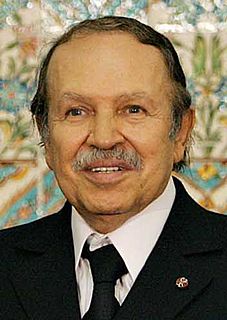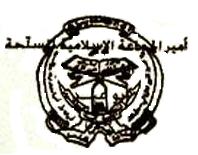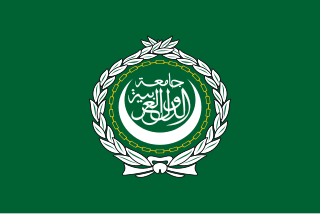
The President of Algeria is the head of state and chief executive of Algeria, as well as the commander-in-chief of the Algerian People's National Armed Forces.

The Democratic National Rally is a political party in Algeria. It is led by the Prime Minister Ahmed Ouyahia. The party held its Second Congress on 15–17 May 2003.

The Movement for the Society of Peace is an Islamist party in Algeria, led until his 2003 death by Mahfoud Nahnah. Its current leader is Bouguerra Soltani. It is aligned with the international Muslim Brotherhood.

Liamine Zéroual is an Algerian politician who was the fourth President of Algeria from 31 January 1994 to 27 April 1999.
The High Council of State in Algeria was a collective presidency set up by the military on 14 January 1992 following the annulled elections in December 1991.
Elections in Hungary are held at two levels: general elections to elect the members of the National Assembly and local elections to elect local authorities. European Parliament elections are also held every 5 years.
The Algerian Civil War was a conflict in Algeria, starting in 1991 and continuing to a diminished extent up to the present.

Parliamentary elections were held in Algeria on 26 December 1991. The first multi-party elections since independence, they were cancelled by a military coup after the first round after the military expressed concerns that the Islamic Salvation Front, which was almost certain to win more than the two-thirds majority of seats required to change the constitution, would democratically form an Islamic state. The annulling of the election led to the outbreak of the Algerian Civil War.

Parliamentary elections were held in Algeria on 5 June 1997. The result was a victory for the National Rally for Democracy (RND), a new party created in early 1997 for President Zéroual's supporters, which won 156 out of 380 seats. They were followed by the Movement of Society for Peace with 69 seats, the FLN (62), and the Islamist Ennahda (34). The two Berberist parties, FFS and RCD, got 20 and 19 seats respectively. Views on this election were mixed; most major opposition parties filed complaints, and the success of the extremely new RND raised eyebrows. The RND, FLN, and MSP formed a coalition government, with the RND's Ahmed Ouyahia as prime minister.

The British Virgin Islands general election, 2007 was held in the British Virgin Islands on 20 August 2007. The result was a landslide victory for the opposition Virgin Islands Party (VIP) over the incumbent National Democratic Party (NDP).

The 2002 Algerian Legislative election was held in Algeria on 30 May 2002 to elect members of the People's National Assembly. The governing National Liberation Front (FLN) won a majority of seats in the election. The election suffered from a low turnout, violence and boycotts by some opposition parties.

A presidential election was held in Algeria on 9 April 2009.

The 1999 Algerian presidential election took place on 15 April 1999 to elect the President of Algeria. Abdelaziz Bouteflika was elected with 73.8% of the vote after the other six candidates withdrew on the eve of the election.

General elections were held in Zambia on 5 December 1973. They were the first elections held since the country was formally declared a one-party state in August, with the United National Independence Party (UNIP) as the only legally permitted party. UNIP leader Kenneth Kaunda was automatically elected to a third five-year term as President, and was confirmed in office via a referendum in which 88.8% of voters approved his candidacy. UNIP also won all 125 seats in the National Assembly. Voter turnout was 39% of the 1,746,107 registered voters for the presidential election, and 33% for the National Assembly election.

General elections were held in Zambia on 12 December 1978. At the time, the country was a one-party state with the United National Independence Party (UNIP) as the sole legal party. UNIP leader Kenneth Kaunda was automatically elected to a fourth five-year term as President, with 80.7% of voters voting to confirm him in office. UNIP also won all 125 seats in the National Assembly. Voter turnout was around 65% in the parliamentary election, but 66.7% in the presidential election.

A referendum on the Civil Concord Law was held in Algeria on 16 September 1999. The Civil Concord Law was an amnesty law that provided the legal framework to implement the 1995 "rahma" law promulgated by former President Liamine Zeroual. It was put forth by President Abdelaziz Bouteflika and adopted by parliament on 8 July 1999. The purpose of the law was to end the Algerian Civil War, and its most important element was its establishment of a system of clemency for Islamist fighters. The law was approved by 98% of voters with an 85% turnout. One factor contributing to the high level of support received by the referendum is the lack of guidance that opposition parties gave to their supporters, not wanting to appear to be voting "against peace."

The Ninth constituency for French residents overseas is one of eleven constituencies each electing one representative of French citizens overseas to the French National Assembly.

A legislative election was held in Algeria on 10 May 2012. The incumbent coalition, consisting of the FLN of President Abdelaziz Bouteflika and the RND of Prime Minister Ahmed Ouyahia, held on to power after winning a majority of seats. The Islamist parties of the Green Algeria Alliance lost seats.


















